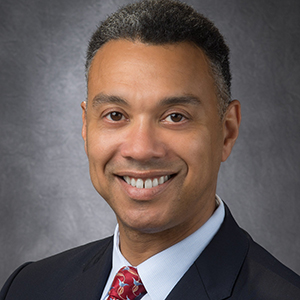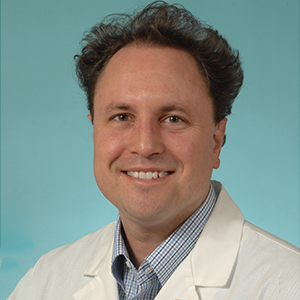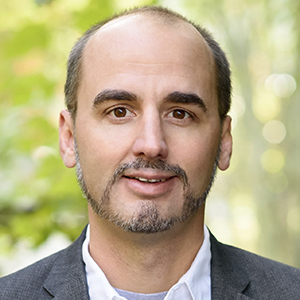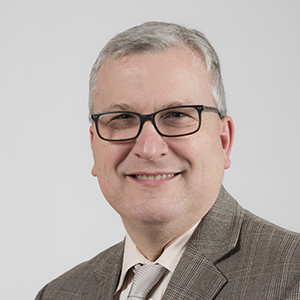Research We Fund
With hundreds of projects currently underway, we fund scientists through our academic grant programs and biotech partners through our strategic venture philanthropy initiative. Use the filters below to find an LLS-funded project.
For a better viewing experience, please use a larger device.
Novel Immunotherapy Combinations in Relapsed, Refractory Mantle Cell Lymphoma
We are evaluating two parallel clinical trials with synergistic immunotherapies in mantle cell lymphoma (MCL), including 1) tafasitamab and lenalidomide and 2) glofitamab and lenalidomide. We will investigate how these treatments impact the MCL immune microenvironment and mediate anti-tumor immune responses, and will correlate these changes with outcome.
Our goal is to develop safe, effective, and "off-the-shelf" immunotherapies to improve outcomes for patients with relapsed, refractory MCL.
Program: Career Development ProgramProject Term: Start Date: July 1, 2024 End Date: June 30, 2029
Next-Generation Targeted Therapy in Mantle Cell Lymphoma and Transformed Follicular Lymphoma
The field of cancer treatment has made remarkable progress with the adoption of targeted therapy; however, small molecule drugs have limitations such as drug resistance and off-target toxicities. To overcome these challenges, we have developed an innovative approach that enhances the potency and precision of small molecule drugs. Our cutting-edge high-precision pretargeted nanoparticles can deliver potent triple inhibitors that effectively combat drug-resistant mantle cell lymphoma and dual proteolysis targeting chimeras (PROTACs) for treatment of transformed follicular lymphoma. Our proposal is supported by extensive preliminary data, and we are excited to be at the forefront of this revolutionary novel treatment strategy.
Program: Translational Research ProgramProject Term: Start Date: July 1, 2024 End Date: June 30, 2027
Developing Novel Immunotherapies for Challenging Lymphomas
This team science program from Washington University will develop new immunotherapy treatments for patients with hard to treat or incurable lymphomas. The team includes physicians and scientists who have developed new ideas in the laboratory for immune-based treatment, and will translate these to clinical trial testing. These include engineered natural kill cells, healthy donors T cell engineered to attack a T cell lymphoma, and lymphoma-patient specific mutations as vaccine targets.
Program: Specialized Center of Research ProgramProject Term: Start Date: October 1, 2023 End Date: September 30, 2028
Understanding Resistance Mechanism to Enhance CAR-T Immunotherapy for MCL
Mantle cell lymphoma (MCL) is an aggressive B-cell lymphoma characterized by resistance to standard treatments and short survival. For the 2023 LLS MCLII Synergistic Team Award, we have assembled a team of leaders in basic, translational, and clinical research in MCL to tackle the current significant obstacles in understanding and treating MCL. In the last decade, we investigated the therapy resistance mechanism of MCL, and pioneered clinical trials for targeted therapies (ibrutinib, lenalidomide) and chimeric antigen receptor T-cell (CAR-T) therapy. However, despite these dramatic advancements, resistance to these newer therapies, including targeted therapy and CAR-T cells, is seen in over 50% of patients. Thus, it remains an unmet need to better define the mechanisms of resistance and then develop rationally designed strategies to overcome resistance. The overall goal of this Synergistic Team Award is to develop improved curative therapies for patients with MCL at relapse. The goals will be addressed in three highly focused, independent but highly integrated projects that utilize state-of-the-art genomic technologies, patient-derived xenograft models, clinical data and primary MCL samples. With the joint effort of our laboratories, highly interactive and accomplished scientists, and physician researchers from multiple institutions with expertise in MCL and therapy, we are uniquely poised to develop improved next-generation of combination therapy for relapsed MCL patients.
Program: Mantle Cell Lymphoma Research InitiativeProject Term: Start Date: July 1, 2023 End Date: June 30, 2027
MULTIlayer Predictive models for relapsed MCL after ibrutinib as first line therapY (MULTIPLY)
The MULTIPLY is a large multi-institutional project aimed at characterization of a variety of clinical predictors, both baseline and at relapse through three interconnected Work Packages (WP) with the following objectives: I) Identification of clinical factors affecting prognosis and characterization of relapses; II) Identification of lymph node biomarkers III) characterization of liquid tissue associated biomarkers. All parameters will be integrated through biostatistical and artificial intelligence tools to establish a comprehensive model of relapse prediction and optimal salvage treatment. The proposal is conducted by the Eu-MCL-Network which is the largest group conducting clinical and translational research worldwide in MCL including the largest phase III trials ever conducted. MULTIPLY will exploit the extensive dataset and tissue bank of the TRIANGLE trial that will be presented as abstract #1 at the ASH plenary session. This study will establish a novel standard by the addition of ibrutinib to first-line treatment, but will also raise relevant issues for prediction and management of disease relapse in first-line BTK-era. The expected results will be the generation of comprehensive integrated models for relapse prediction MCL and development of an effective platform to develop rational chemotherapy-free strategies based on genetic alterations of the malignant cell and innovative biomarker-driven strategies.
Program: Mantle Cell Lymphoma Research InitiativeProject Term: Start Date: July 1, 2023 End Date: June 30, 2027
Autologous CD22 CAR T cell Therapy for the Treatment of non-Hodgkin Lymphoma
CD19 targeting chimeric antigen receptor (CAR) T cell therapies (CAR19) are effective treatments for patients with non-Hodgkin Lymphoma (NHL), however, the majority of these patients will relapse. We have now evaluated a CD22 targeting CAR T cell therapy (CAR22) in patients who have large B cell lymphoma who have relapsed after CAR19 therapy and found that this therapy is both safe and effective resulting in a high rate of durable complete responses. We will now test this promising CAR22 for the first time in patients with other non-Hodgkin Lymphoma subtypes including mantle cell lymphoma, follicular lymphoma, and other CD22-expressing lymphomas.
Program: Academic Clinical Trials Program (ACT)Project Term: Start Date: July 1, 2023 End Date: March 14, 2027
Development of novel BTK-MALT1 dual inhibitors to treat MCL
Most patients respond well to drugs that inhibit an important MCL target named BTK. However, almost all of them will eventually relapse and then do very poorly. Inhibition of MALT1, a target which is biochemically downstream of BTK, may rescue many of these patients, and inhibiting both BTK and MALT1 may be better still. Developing a drug that inhibits both targets at the same time, from the beginning of treatment, will avoid some complications and likely be best of all; we will find out.
Program: Mantle Cell Lymphoma Research InitiativeProject Term: Start Date: July 1, 2023 End Date: June 30, 2026

Christopher Flowers, MD
The University of Texas MD Anderson Cancer Center
Houston, TexasResearch Infrastructure to Promote Enrollment of Underserved Patients on Clinical Trials
The goal of the Clinical Trial Network of South Texas is to expand access to high quality clinical trials for under-represented minority (African American and Hispanic) patients with lymphoid cancers who receives care at the UT San Antonio Mays Cancer Center (MCC) and community oncology centers in South Texas. To achieve this goal, we will leverage the existing partnership between MD Anderson Cancer Center (MDACC) and its robust clinical trial infrastructure to identify and deploy suitable clinical trials. We also will strengthen the research infrastructure at MCC and community sites, including providing equipment, clinical trial navigation support, and oversight to successfully deploy trials. By establishing MDACC/MCC as a hub for clinical trials, developing the necessary research infrastructure at community oncology centers, and allowing patients to participate in clinical trials at their local oncology centers, this IMPACT program has the potential to improve clinical outcomes.
Program: IMPACTProject Term: Start Date: October 1, 2022 End Date: September 30, 2027
Establishing Hematology Clinical Trial Hubs within the City of Hope Community and Affiliate Network
City of Hope (COH) has embarked on a strategic initiative to optimize our clinical network and increase research capacity at our Community and Affiliate Network (CAN) sites in Southern California. I would like to spearhead this endeavor for the Hematology program at our new Irvine campus in Orange county, which is set to open in August 2022. We are employing a hub-and-spokes model, in which the Duarte main campus is the main research center, with 3-5 multi-disciplinary CAN sites ultimately designated as research hubs. These CAN sites (hubs) will serve geographically proximal practice sites (spokes), which will refer patients for treatment on clinical trials at either the CAN site itself or at the main Duarte campus. Following a 6-month pilot for optimizing staffing, investigational pharmacy setup, specimen and data collection in Irvine, an additional CAN site will be initiated each year over a 5-year period to allow a wider area of Southern California residents to have access to high quality and impactful clinical trials in Hematology. Our ultimate goal is to accrue 20-50 patients per year from the community, depending on the number of sites activated each year.
Program: IMPACTProject Term: Start Date: October 1, 2022 End Date: September 30, 2027
Targeting SYK:ZAP70 coexpression in refractory B-cell malignancies
The B-cell kinase SYK and its T-cell homolog ZAP70 have almost identical functions but are strictly segregated to B- and T-cells. We recently discovered that B-cell malignancies frequently coexpress ZAP70 and that only SYK but not ZAP70 can trigger negative B-cell selection and cell death. Here we test the hypothesis that ZAP70 enables malignant B-cell transformation, test pharmacological SYK-hyperactivation and validate ZAP70 as biomarker of patients who benefit from this approach.
Program: Translational Research ProgramProject Term: Start Date: July 1, 2022 End Date: June 30, 2025
Stratified treatment of newly diagnosed MCL based on the presence or absence of high risk features utilizing non-cytotoxic agents.
We believe that regimens without chemotherapy can induce significant and durable remissions in patients with Mantle cell lymphoma (MCL). We will confirm this hypothesis by conducting two clinical trials stratified by the presence or absence of high risk features. We will utilize BH3 profiling and MRD testing to assist with predicting treatment response and remission. Our goal is to verify the efficacy of our regimen and prove the utility of BH3 profiling and MRD testing in outcome prediction.
Program: Career Development ProgramProject Term: Start Date: July 1, 2022 End Date: September 30, 2027
BRIDGE (Blood cancer Research Initiative Developing Greater Engagement) with community patients
The Weill Cornell Medicine (WCM) Meyer Cancer Center (MCC) has an internationally recognized, clinical/translational blood cancer research program focused at its Manhattan campus. Elsewhere in New York City, the borough of Queens has 2.3 million and the borough of Brooklyn has 2.5 million residents. Both are among the most ethnically diverse urban areas in the world, and each separately ranks just behind Los Angeles and Chicago in population. Over 50% of patients diagnosed with blood cancers in New York City live in Brooklyn or Queens, and half of those are non-white. Involvement of academic cancer centers with a hematologic malignancy clinical trials program physically located in Brooklyn or Queens has previously been limited. New York Presbyterian Hospital and WCM have now integrated with New York Presbyterian-Queens (NYP-Q) and New York Presbyterian-Brooklyn Methodist Hospital (NYP-BMH) to provide access to outstanding cancer care and research for these populations. The community outreach and engagement core of the MCC (led by Dr. Erica Phillips) partners with a robust network of affiliated ambulatory care practices in Brooklyn and Queens. The core has hosted roundtables with over 120 stakeholders (cancer advocacy groups, community physicians, social service organizations) around barriers to diagnosis and treatment in solid tumors, and we will capitalize on this program to expand to blood cancer trials. Other workshops will be targeted directly to diverse groups of patients. Additionally, WCM-MCC cross-campus Hematologic Malignancy Disease Management teams are led locally by Dr. Perry Cook (NYP-BMH) and Dr. Gina Villani (NYP-Q). Clinical trials infrastructure and staffing, a joint IRB, training and oversight are being implemented. This foundation is ideal to synergize with this proposal (BRIDGE) to accelerate access and support for clinical trial participation of blood cancer patients in Brooklyn and Queens who have been previously underserved.
Program: IMPACTProject Term: Start Date: April 1, 2021 End Date: March 31, 2026
REACH: Recruitment Expansion through community Access to Clinical trials in Hematologic malignancies
Mayo Clinic Rochester (MCR) is a tertiary center with 35,000 blood cancer visits annually. Circa 70% of patients referred to MCR come from 5 states: MN, WI, IA, SD and ND inhabited by 10,483,946 people living primarily in a rural setting. To improve local care access, MCR has developed the Mayo Clinic Health System (MCHS), a network of 17 community sites of which 7 have oncology care. In 2018, the MCR joined with the University of Minnesota to establish the Minnesota Cancer Clinical Trials Network (MCCTN) that includes 18 sites. These 2 networks encompass large areas of rural, economically disadvantaged populations and unrepresented minorities, including Native Americans, Latinos and African Americans. The MCR is actively supporting clinical research at MCHN sites, including access to clinical trials (CTs) portfolio. Oncology CTs are open in some of MCHS sites but of the 25 currently open, only 2 CTs target blood cancers. The University of Iowa/Mayo Clinic Lymphoma SPORE has opened epidemiological trials in the MCHS. The MCCTN is new and none of the 3 open CTs are hematologic. Lymphoma study accruals from the MCHS include 42 patients (1 therapeutic; 41 lymphoma epidemiology). The robust epidemiology trial accrual demonstrates that these new lymphoma patients are being seen at these sites and are willing to consent. While many patients from rural communities are seen at MCR for initial diagnosis, these patients often are unable to enroll into trials due to distance from MCR. Feedback from providers from both Networks identified barriers to accrual to lymphoma CTs: i) lack of local lymphoma trials; ii) competition with the more common solid tumor CTs for scarce resources; iii) very busy clinical practices that limits dedicated time for enrollment of intensive complex hematology patients. The practice pressure particularly affects patients requiring language or financial assistance. In this proposal, we outline our plans to address the 3 barriers identified.
Program: IMPACTProject Term: Start Date: April 1, 2021 End Date: March 31, 2026

Alexey Danilov, PhD, MD
Beckman Research Institute of the City of Hope
Duarte, CaliforniaOvercoming ibrutinib resistance in mantle cell lymphoma
Mantle cell lymphoma (MCL) is an aggressive blood cancer which affects about 3,000 individuals in the United States annually. Despite advances of novel therapies in blood cancers, MCL remains incurable, and patients ultimately succumb to disease. We seek to evaluate longitudinal samples from patients with MCL treated with novel therapies to understand the mechanisms of drug resistance. We identify novel targets, with a particular focus on protein turnover pathways, to overcome drug resistance and improve survival of patients with MCL.
Program: Career Development ProgramProject Term: Start Date: July 1, 2018 End Date: June 30, 2023











